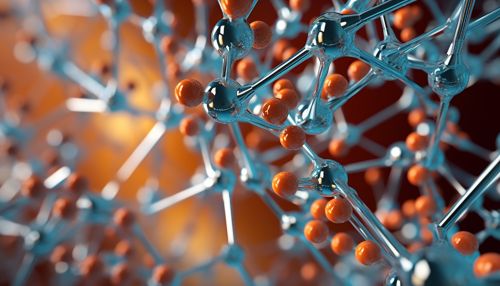The Role of Glycobiology in Immunology and Vaccine Development
Introduction
Glycobiology is the scientific study of the structure, biosynthesis, and biology of saccharides (sugar chains or glycans) that are widely distributed in nature. It is a rapidly growing field in biology, with relevance to immunology and vaccine development. This article explores the role of glycobiology in these areas, delving into the mechanisms and implications of glycan interactions in immune responses and how this knowledge is harnessed in the development of vaccines.


Glycobiology and Immunology
The immune system is a complex network of cells, tissues, and organs that work together to defend the body against harmful pathogens. At the heart of this system are the interactions between immune cells and the molecules they recognize, many of which are glycans. These sugar chains, found on the surfaces of all cells, play a crucial role in immune recognition and response.
Glycan Recognition
Glycans are recognized by a variety of immune receptors, including C-type lectins, Siglecs, and galectins. These receptors bind to specific sugar structures, triggering a cascade of intracellular signals that lead to immune activation or suppression. The specificity of these interactions is determined by the unique structures of the glycans, which are in turn influenced by the enzymes involved in their biosynthesis.
Glycans and Immune Response
Glycans play a pivotal role in modulating immune responses. For instance, changes in glycan structures on the surface of immune cells can alter their interactions with other cells, influencing immune cell trafficking, activation, and effector functions. Moreover, glycans on pathogens can be recognized by the immune system, triggering an immune response. However, some pathogens have evolved to mimic host glycans, enabling them to evade immune detection.
Glycobiology and Vaccine Development
Understanding the role of glycans in immune responses has significant implications for vaccine development. Vaccines work by training the immune system to recognize and respond to specific pathogens, and glycans are often key components of this recognition process.
Glycoconjugate Vaccines
Glycoconjugate vaccines are a type of vaccine that combines proteins and glycans to stimulate a robust immune response. The glycan component of these vaccines is typically derived from the pathogen of interest, ensuring that the immune response is targeted towards the pathogen. The protein component, on the other hand, helps to stimulate a stronger and more durable immune response.
Glycan-Based Adjuvants
Adjuvants are substances that enhance the body's immune response to an antigen. Some adjuvants work by mimicking pathogen-associated molecular patterns (PAMPs), many of which are glycans. By incorporating these glycan-based adjuvants into vaccines, it is possible to stimulate a stronger and more specific immune response.
Conclusion
Glycobiology plays a crucial role in immunology and vaccine development, influencing everything from immune recognition to the design of vaccines. As our understanding of glycobiology continues to grow, so too will our ability to harness its potential in the fight against infectious diseases.
